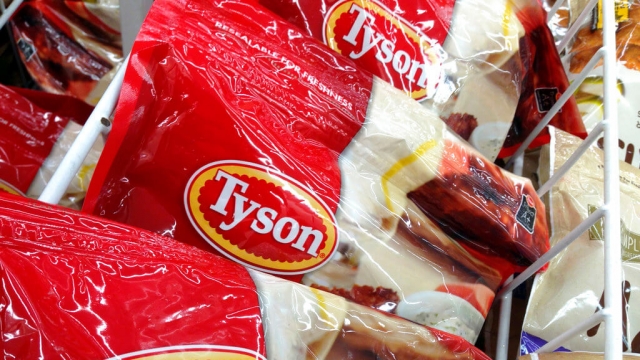Tyson Foods, the largest poultry producer in the U.S., plans to start giving its chickens antibiotics again. The meatpacker announced the move after eight years of it withdrawing the drugs from its chickens and putting a "no antibiotics ever" label on its chicken packages.
This news is coming out as lawmakers put more pressure on the U.S. Department of Agriculture over misleading labels on meat products.
"People believe that they will be healthier with humanely raised, grass fed free range, then they should have the assurance of those labels being truthful and accurate," said Sen. Richard Blumenthal, one of the lawmakers leading the charge over labels.
Earlier this year the non-profit Animal Welfare Institute released a report that says for about 100 animal-raising claims marketing by the meat industry on product labels, the USDA was unable to provide any proof that the producer submitted an application saying they follow the protocols that the labels suggested.
SEE MORE: Save on your Fourth of July BBQ with these simple swaps
According to the Washington Post, last month, the USDA reported that it is considering higher standards for food labels.
Today, Senator Blumenthal has called on the USDA to get a third party to look into what producers are claiming about their meat, before hitting America's store shelves.
"These labels should mean something because people are paying more, sometimes double for them," he said.
"The reason that antibiotic free poultry is more expensive is because it's more expensive proposition. It doesn't mean that it is any less safe or any less tasteful for that matter. It really depends on the consumer's preference and that preference should be based on science and facts and not emotion," said Peter Pitts, a former associate commissioner of the U.S. Food and Drug Administration and the current president of the Center for Medicine in the Public Interest.
He said that the USDA potentially strengthening labeling standards doesn't have anything to do with lax rules, but more to with keeping up with evolving science.
"That does not mean that the use of antibiotics in meat and poultry is unsafe. It means that we need to understand what's happening," he said.
Pitts says if a product is lacking a label.. it does not mean the food is harmful. He suggests that the best thing for consumers to do is to research what these labels really mean— and decide if the product is worth the extra cost for the label.
Trending stories at Scrippsnews.com




